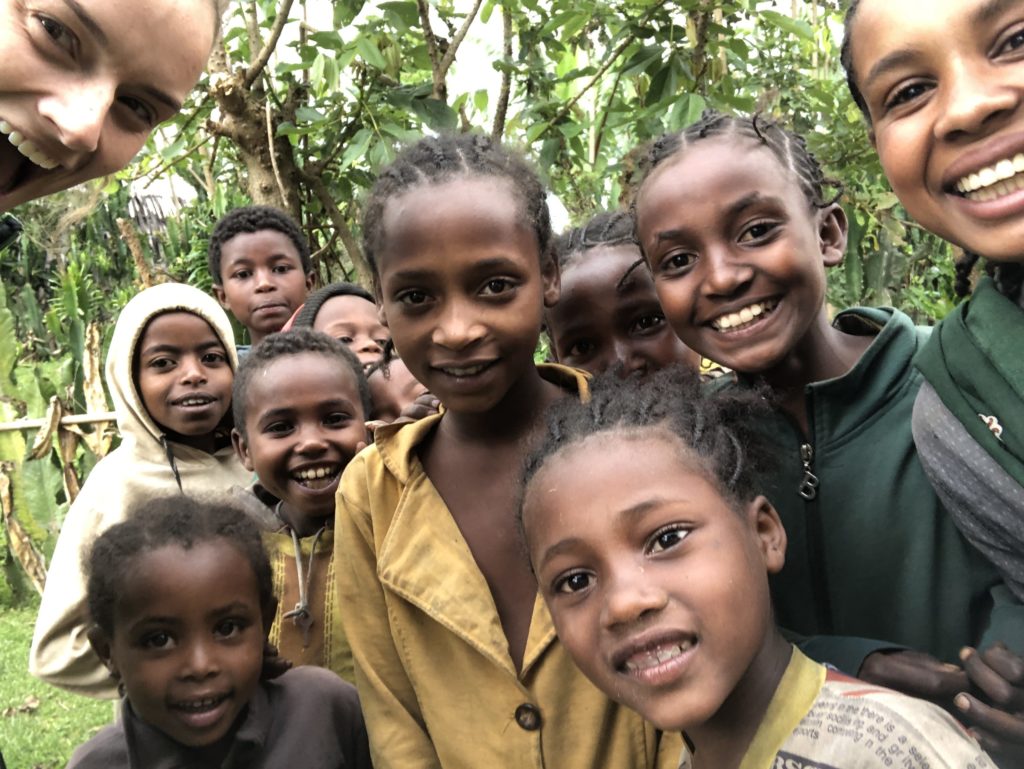
Water to Thrive’s Summer 2019 vision trip is under way, and as she travels through Ethiopia and Uganda to visit our water projects, Executive Director Susanne Wilson is accompanied by our summer interns, Madison Mageira and Kendall Prossner. This is the first trip to Africa for both Madison and Kendall, and they will be sharing their experiences.
Madison writes about her first day visiting communities where we work.
Today was my first day out in the field in Ethiopia with Water to Thrive! We visited four projects today and throughout visiting these projects and meeting with people in the various villages, one thing stood out to me. Everyone I met was so friendly and welcoming.
When looking out the window while we were driving through the countryside, I saw so many happy and smiling faces. Everyone greeted us with enthusiastic waves and even calls of “hello,” “welcome” and sometimes “I love you,” which made us laugh. In the hotels and in the city of Addis, where we stayed the first night of our trip, everyone I met welcomed me with a smile and was curious to learn about me. Upon meeting the villagers out in rural Ethiopia, some looked curious about me and some, especially the children, were bashful and scared to come by me at first. They could tell by my skin that I was not from the same place as them and that I am a foreigner (“firenji” in Amharic). However, after I said hello to them (“selam” in Amharic), shook their hands and smiled at them, their faces immediately lit up and they wanted to be friends. Our Water to Thrive team soon discovered that after these initial greetings at a project site, we would have a little posse of kids following us around for the rest of our visit.
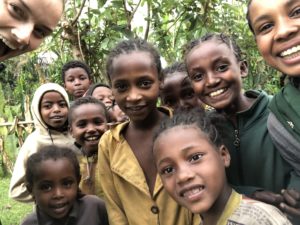
Kendall, at left, with new friends.
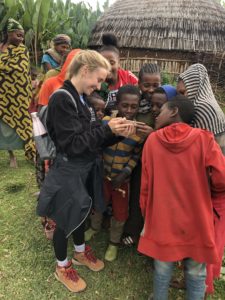
Madison shares some of her photos.
During our visits, some of the children touched my skin and hair because they were curious about it or had never seen white skin and blonde hair. Many children (and adults) wanted their picture taken and loved seeing the pictures and videos of themselves on my phone. I spoke in Amharic to learn their names and I told them my name is Madison. Some of the villagers understood me when I said this and some did not because they do not all learn Amharic. However, even though I could not engage in conversation with all of the villagers due to the language barrier, I still felt so welcomed by their warm smiles, laughs and tight hugs.
Thus, the first lesson I have learned about the Ethiopian people we met today is how happy they are. The older villagers beamed with pride when they pointed out their grandchildren to me. The children are so friendly and sweet and all of the people were so grateful to us for visiting and grateful to Water to Thrive and its donors for bringing clean water to their communities.
Their genuine happiness stood out to me because I have not felt this same happiness in communities in the United States. Many people in the U.S. are so busy with their day-to-day routines that they do not stop to wave to people, greet each other with smiles or stop to talk or laugh with one another. The Ethiopian people I met live without many of the comforts that I enjoy in the U.S., like easy access to clean water, washing machines and microwaves, for example. They walk miles to collect water, hand-dig wells for water, wash clothes by hand, cook without electricity, etc. and in this way their day-to-day lives are much more strenuous than my life in the United States. However, they are so happy and thankful for what they do have – homes, communities, family, friends, love and laughter. It has reminded me that although modern technology and materialistic things provide comfort, they are not needed for true happiness.
Today’s visits also reinforced for me the way in which clean, safe water creates happiness. The communities were so excited to have wells in their village. Access to safe water is a basic need and once this need is met, the community is able to grow and thrive in other areas. After seeing so many bright and cheerful faces, I know that these communities will only flourish more once they are able to easily access clean, drinkable water.

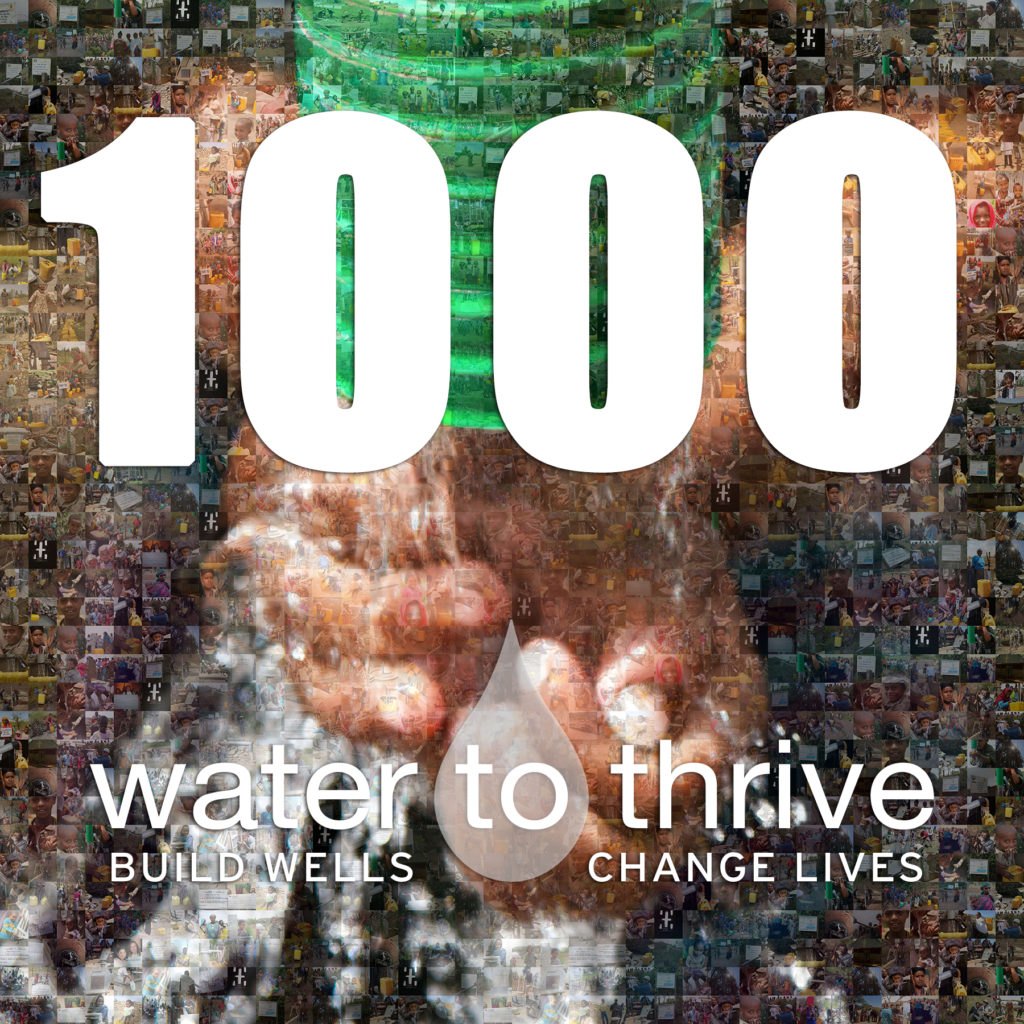
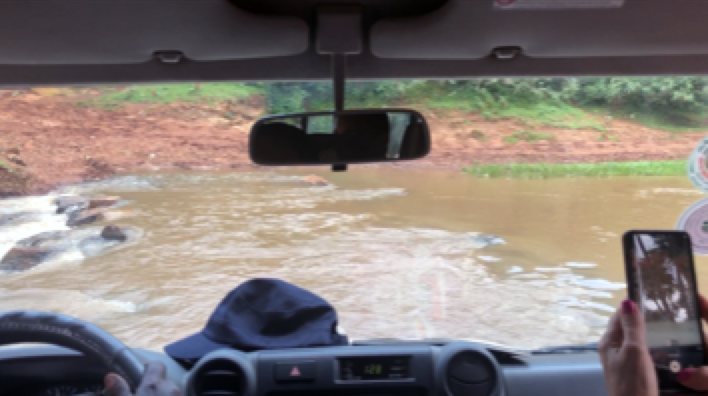
About The Author: Water to Thrive
More posts by Water to Thrive